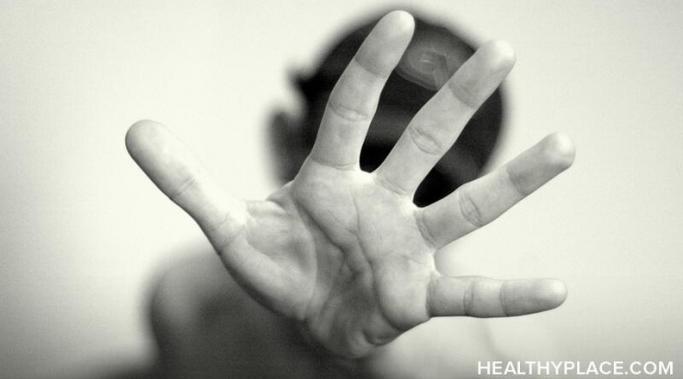Blogs
Any serious PTSD blog (and that is definitely what I want this to be!) has to start with the lowdown on the details of posttraumatic stress disorder itself. If you've heard about PTSD in the media or if you have a friend or family member - or even think you, yourself, might have a touch of this completely normal reaction to an abnormal circumstance - then right off the bat, it's good to know how to recognize PTSD (symptoms of PTSD) so that you can begin to wrangle the beast.
As you might have heard, last week it was revealed that Jesse Jackson Jr., an Illinois congressman, is in treatment for bipolar disorder. Jackson Jr. has been on medical leave since June 10th and has been diagnosed with bipolar II.
As Candice Crawford, CEO and president of the Mental Health Association of Central Florida in Orlando, says, “People with bipolar II can lead perfectly normal lives.”
I agree completely, but the question is, can they be elected to public office?
Like it or not, stress is a part of life. Sadly, too much stress can cause a person with borderline personality disorder (BPD) to suffer from psychiatric symptoms. For example, after a death in the family and a close friend moving away (which happened within days of each other), I wrestled with self-harm urges. But there are ways to deal with stress and the BPD symptoms it causes. One such way is looking for humor--either in the situation or from outside sources.
Last week I had the distinct (snicker) pleasure of having to visit my dentist due to an abscess. After a brief consultation I decided to have the tooth extracted. It was at this time that the hygienist recommended a narcotic pain killer. I declined and said I would take Extra Strength Tylenol.
In the midst of a psychotic episode, you succumb to the voices in your head telling you the only way to make things right is to set a fire in the local church (Psychopaths Versus Those Who Experience Psychosis). This way, the demons in your mind will allow you to be free.
Recently, I was in the psychiatric ward of a local hospital. While I was there, a young psychiatrist interviewed me. He asked me "What advice do you have for me regarding treating borderline personality disorder (BPD)?"
I was caught off-guard because nobody ever asked me that. Yet he genuinely wanted my opinion, so I shared it. Then I figured that other psychiatrists might want to know, so here's the advice I have.
When I was thirteen, I survived an illness so rare none of my New York City doctors had ever seen a case. An allergic reaction to a medication brought on a case of Toxic Epidermal Necrolysis Syndrome, which turned me into a full-body burn patient almost overnight. By the time I was released from the hospital, I had lost 100% of my epidermis.
Just to be clear, I’m not the biggest fan of drug companies. I’ve written about how much I dislike them and I’ve written about how wrong it is when they break the law and I’ve written about how ridiculous the penalties are when they do. I understand why people are outraged at companies that produce a healthcare product and then don’t follow the rules designed to protect of the health of the consumers that take it.
But that aside, people seem to be really mad that pharmaceutical companies put profits before people. And my point is, so what?
Erica was going through a huge life transition. After her break-up and the move of her best friend across the country, she was having a hard time. She described her self-esteem as “non-existent” and found it difficult to enjoy her life; even the things she used to find pleasurable and fun. Erica was spending most of her time at work, rather than in her empty house filled with memories of the past.
She was becoming more aware that she needed to do something to get her out of this funk.
As many of you know, I am a devotee of quotations – those bite-sized nuggets of wisdom summarizing great truths of life quickly and with wit.
Some years back, in a cold, dingy room choked to the gills with cigarette smoke, bad coffee, tattoos, and incomprehensible blather uttered badly by battered bikers, businessmen, beauticians and stay at home moms, united in anonymous terror, I first heard this said.
"Insanity is doing the same thing over and over and expecting different results."
Later I found that this pearl of wisdom is credited to everybody’s favorite patent clerk, Albert Einstein. However… The more time I spent on the Internet the more I realized that roughly half of all quotes found there are bogus. Some are real but credited to the wrong author; others are totally made up and attributed to a famous, credible person.






![MP900337232[1]](/sites/default/files/styles/blog_listing/public/uploads/2012/08/MP9003372321.jpg?itok=eDEPw9GC)

